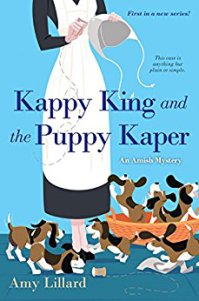
//published 2007//
I remember reading a couple of the books from this series a very long time ago, back when there were only three or four in the series. It’s one that I have meant to revisit for quite some time, especially since several books have been added to it since then. However, in the end I reread these two books and found them rather bland, and so have decided not to fuss with the rest of the books after all.
The books center on Charles Lenox, a gentleman in 1860’s London, who works as a private detective. He’s a rather odd character because he apparently has enough money of private means to just ‘be a gentleman’ but chooses to work as a detective as well. We don’t meet up with him on his first big case, but are dropped into the middle of his career, seemingly at random. He lives next door to a widow, Lady Jane, with whom he also grew up. His older brother, Edward, serves in parliament, which is actually Lenox’s dream job (which makes sense, because he loves rambling on about random stuff all the time).

//published 2008//
The main problem I had with these books was Finch’s tendency to really pontificate about random things. I don’t mind a bit of background on a character or a few lines of description to help with the setting, but in these books it feels like every time Lenox passes a historical building or London neighborhood, Finch finds it necessary to go on for at least a paragraph, explaining the history and significance of the location, as well as all of Lenox’s personal associations with the spot. After a while, it really began to feel like it was interfering with the pace of the story.
For instance, in The September Society, Lenox passes through a park:
Green Park, a shamrock-colored rectangle that lay behind the Houses of Parliament, was warm and beautiful that afternoon. The willow trees bent toward the lake, their lowest branches just brushing the water, and the park’s lone wanderers and couples alike walked more slowly than they had along the fast city blocks, stopping to watch for a while. Lenox always liked to watch the swans gliding serenely, birds with just the mix of beauty and danger that humans like in wildlife – for a swan, of course, could break a man’s arm.
Okay, a bit prosy but alright. Except the next paragraph, rather than getting on with the story, continues with the swans!
Another curious fact about them was that every swan in England belonged to Queen Victoria. Not many people knew it, but poaching swans was an offense the crown could punish. The official swan keeper to Her Majesty wrangled the birds in the third week of July every year, when they were served at the Queen’s table and a few others across the isles, in Cambridge, Oxford, York, Edinburgh. The swans were mute, but at their deaths they found voice and sang, and the long line of wranglers always claimed to be haunted by the sound. It was the origin of the term swan song.
??? Just… this has nothing to do with the story. And if this was the only instance of this meandering fact-giving it would be find, but it happens multiple times per chapter, and it became very off-putting to me, as it started to feel that Finch felt that it was important to insert all of his research into the story whether it fit or not. It really, really interfered with the pace of the story.
In A Beautiful Blue Death, I was put off almost immediately when Lenox and his friend, a doctor, determine almost immediately that the murder victim’s death was caused by a very rare poison. However, we aren’t really told how the doctor arrives at this conclusion. He just… knows? After that, the detective in charge of the investigation decides he doesn’t want Lenox around. So the whole story feels rather strange, with Lenox sort of meandering around the edges of it.
It just felt like both books lacked any urgency. Lenox is very dry as a main character, and always felt rather pompous to me, although part of that is definitely Finch’s narration. However, I will say that my younger brother loved these books, and his favorite part were all the asides and odd facts, so maybe it’s just a reader-preference thing.
All in all, these were solid 3/5 reads for me. They were fine stories that didn’t feel like a waste of time, but also didn’t really leave me with any desire to complete the series. With 105 other mystery series on the TBR, I don’t necessarily feel like I need to read ones that don’t really do something for me.
Advertisements Share this:




